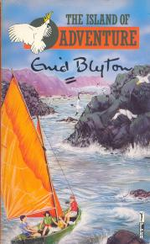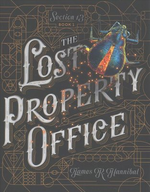Cloud Atlas by David Mitchell
I set this book down not ten minutes ago, and my mind is swirling with all kinds of thoughts, impressions, ideas. It's a very suggestive book, full of references and echoes, not only to literature but history, religion, film and music. The difficulty is figuring out where to begin.
Let's start with the structure. What you have is six stories which are presented one after another in the first half of the book. A, B, C, D, E, F. Each story is a found document of some kind in the next. The narrator of A is writing in his diary, which is reading by the narrator of B who is writing letters that are shown to be read by the protagonist of C...and so on. Each story breaks off incomplete, mid-story, except for story F, which alone is uninterrupted, and alone is not nested inside another story. F is, in effect, the outermost level of this matryoshka doll. In the second half this structure is inverted, with each story continuing where they left off in the opposite order of the first half, or E, D, C, B, A. In essence, the reader begins inside the inner most matryoshka doll (A), ascends to the outermost one E, before re-entering and diving back into the core.
The matryoshka doll metaphor, BTW, is not my invention but the book's. Cloud Atlas is a highly self-conscious work of metafiction that spends quite a bit of energy talking about itself, describing itself. At one point a character in C ("Half Lives") muses to himself on the nature of time.
"One model of time:" he says, "an infinite matryoshka doll of painted moments, each 'shell' (the present) encased inside of a nest of 'shells' (previous presents) I call the actual passt but which we perceive as the virtual past." These philosophical musings are dropped into the middle of what is basically an airport novel, where they stick out like a sore thumb.
This matryoshka doll is a present containing not only shells of the past but of the future. Cloud Atlas is a kind of hybrid historical-science fiction novel whose story extends into the past as well as the distant future. Also importantly, these shells are virtual; they are malleable and constructed, i.e. fictions. They are, furthermore, fictions that serve the needs of the present. "The present," Mitchell writes, "presses the virtual past into its own service, to lend credence to its mythologies + legitimacy to the imposition of will." And if the virtual past is constructed from "reworked memories, papers, hearsay, fiction, in short belief", they help to shape the "virtual future" which is constructed by wishes, prophecies, daydreams". (How far are we meant to push this matryoshka doll metaphor? My instinct says, not that far.)
These simulacra are not merely illusions though. Mitchell makes it quite clear that they help to create our actual future, "as in a self-fulfilling prophecy". The narrator of A, speaking at the end of the novel, picks up this theme. "Belief is both prize and battlefield, within the mind....If we believe humanity is a ladder of tribes, a colosseum of confrontation, exploitation and bestiality, such as humanity is sure brought into being....If we believe that humanity may transcend too and claw, we we believe divers races and creeds can share this world...if we believe leaders must be just...such a world will come to pass."
In story B, the protagonist is composing a piece of music, the Cloud Atlas sextet, which perfectly describes the structure of the novel, ABCDEFEDCBA.
Now, I suppose, we can come at last to the content. The six stories of Cloud Atlas range in style and genre as well as historical period. The density and ingenuity of those linkages are part of the pleasure of the book. For one, in each of the stories a character has a sort of comet shaped birthmark. In C, the protagonist reads the letters of B and realizes that she somehow shares the same memories. Another in B, declares with curious certainty as he's about to commit suicide, "Rome will fall again. Cortes'll lay Tenochitlan to waste again, and later sleep under Corsican stars again...Nietzche's gramophone."Meanwhile, the denizens of F, a postapocalyptic civilization livinig on the margins of an ecologicially devastated world, believe in the reincarnation of souls. This suggests the six stories of Cloud Atlas representing the path of a single soul traveling through different bodies and different historical periods.
All of these forms experience slavery, predation, rape, colonialism and social injustice, as well as a cacophony of voices holding forth on such themes. The world, all of the worlds, of Cloud Atlas are a veil of tears. History is a slaughterbench of suffering.
There are, it seems to me, three main voices in Cloud Atlas. The first might be called the Nietzschean one, the Nietzsche of The Genealogy of Morals, celebrating the brutal vitality of the aristocratic class. "What sparks wars?" says one character from B (the most Nietzschean of the stories), "The will to power, the backbone of human nature. The threat of violence, the feature of violence...is the instrument of this dreadful will...The nation state is merely human nature inflated to monstrous proportions." Incidentally, one of the musical pieces being composed in B is titled "Eternal Recurrence". Here we have a vision of savage vitality, a world overflowing with savage, predatory vitality, ultimately overflowing and consuming itself in a meaningless spectacle.
The other I will call the Stoic: "A life spent shaping a world I want [my child] to inherit, not one I fear [he] shall inherit, this strikes me as a life worth living....I shall pledge myself the abolitionist cause, because I owe my life to a self-freed slave..." Let's describe Stoicism this way: it is a slave ideology. The slave knows that he is unfree, but he thinks to himself, "In my mind I am free."
The Stoic counterposes the freedom of the will to the unfreedom of the world, is unfree because he lives in an unfree world, but he is free in his mind. Unable to transcend the opposition between his will and the world, the Stoic's characteristic response to the world is abstract moral precept, his characteristic attitude resignation.
None of this grand design would work very well as a piece of fiction, I might add, if the writing wasn't so good on a sentence by sentence and page by page level. Few works of experimental fiction are so good a getting you to turn the page. Everywhere there are delightful witticisms, great imagery, nuggets of astonishing lyricism, feats of literary horseplay and pastiche, astute observations on art and culture. And somehow it all moves to gracefully and swiftly, sucking you along all the way to the end.
So why is it that I'm really less taken with this book that this mountain of entirely sincere praise I've heaped on it would suggest? I suppose part of my reservations are a consequence of the structure itself. Each of the stories are merely an episode in the grand arc of a soul's transmigration through eternity. What that arc is is hard to say. Is it an ascent towards Enlightenment? Perhaps. But is certain is that this framing device has distancing effect on each of the individual stories.
Perhaps this is why each of hte stories, taken by themselves, can arouse interest but never urgency. My attitude towards the narrative's goings-on was amused and detached, but I was never quite suffering and feeling with them. Like a God looking down among mortals, I always remained hovering over scene, outside the tableau, never quite immersed.
Something else. Why six stories? I know for a fact this was scaled down from 9. I'm not sure it was scaled back enough. Why not five or four? It seems to me that 3 is the minimum number of parts you need to make this kind of structure work. More adds complication but not necessarily depth.
Nor or all the stories of the same quality. IMHO B, E, and F are the best. B is not badly done at all, if a bit on the nose thematically (we even get something like a moral at the end). C recreates an airport thriller quite competently, but I've read enough airport novels and one more adds nothing to my life. I found myself growing tired of the D's lack of narrative momentum, wherein the comically curmudgeonly protagonist wanders around various train stations and hotels and while constantly griping about his health.
The design of the book perhaps precludes any sort of consistency of tone. The clash of multifarious tones and voices is perhaps part of the design of the book and help to give it a kind of amplitude of human experience.


